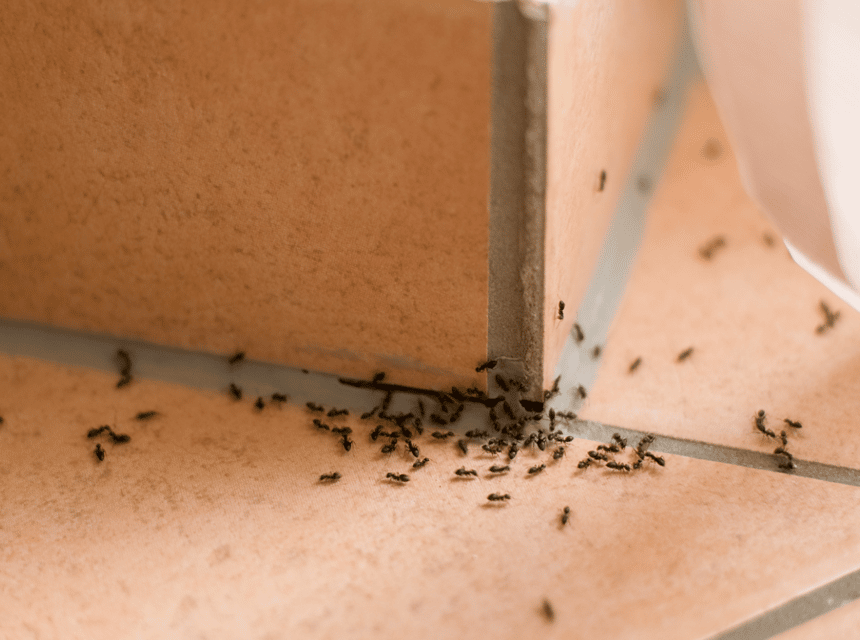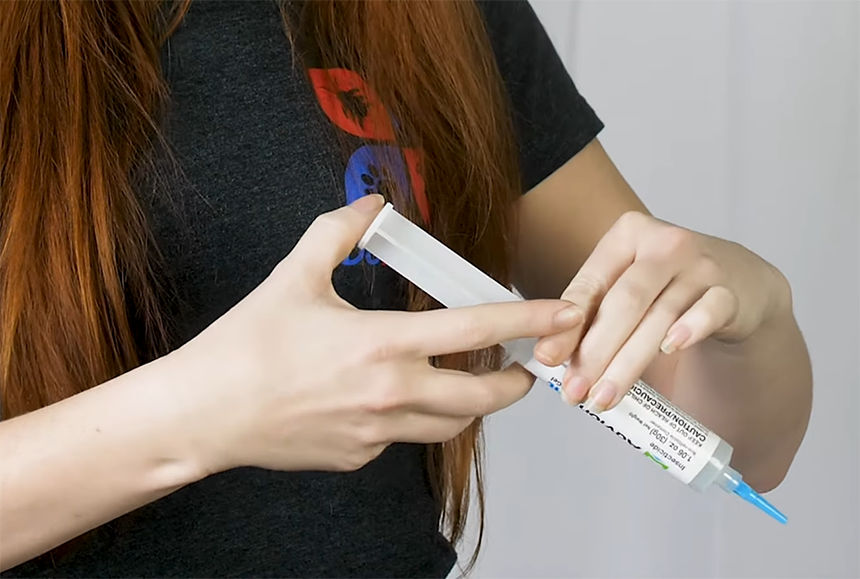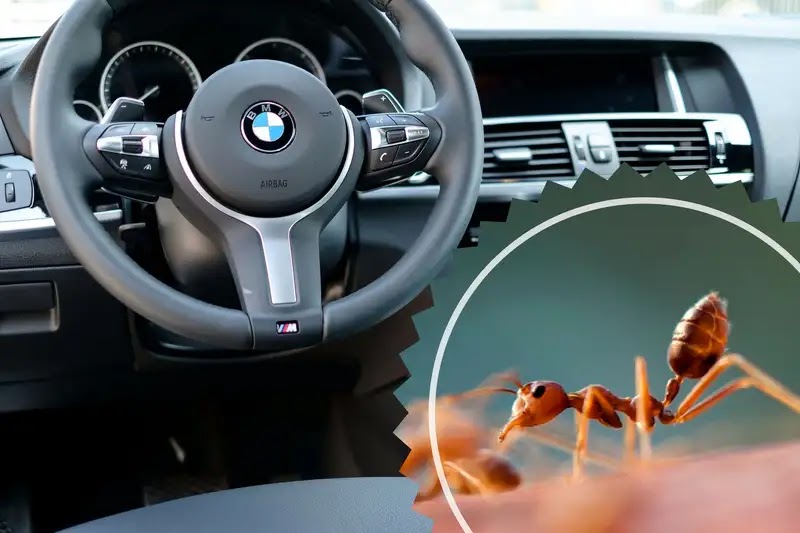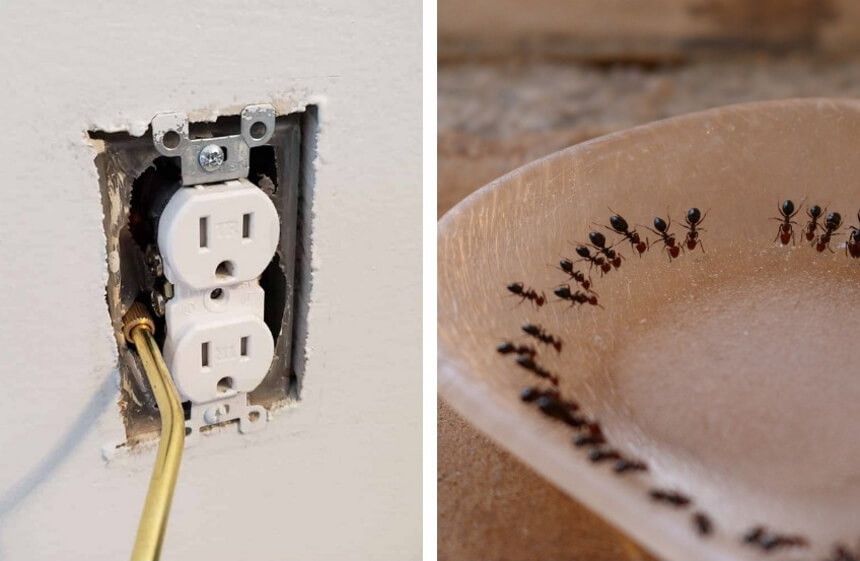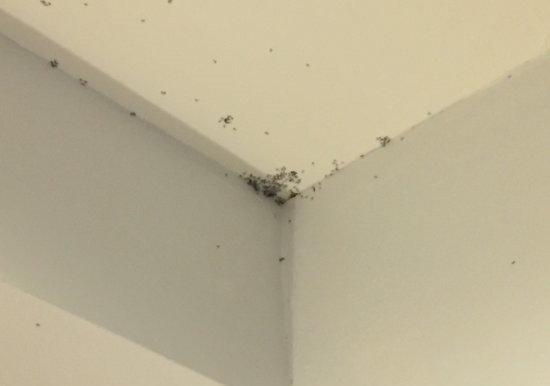

From the indoors to the outdoors, pavement ants are not scared to be anywhere around your home. You can take a little dose, and before you know it, you’ll find them walking majestically in your home as if they’re your roommates.
If these ants are not chasing the smell of BBQ on your patio, they would probably be trailing across your picnic blanket. But one thing is certain; they’ll never stop crawling around to know “what’s up” in your home. By knowing how to get rid of pavement ants in and around your home, you can make your room free from the colonization of these tiny little things.
Pavement ants are very common in the United States. And, you’ll find them in all states. These ants may look tiny but they’re dangerous. While they can inflict damage on your home’s foundation, they can also crawl into your food with all the germs they carry.
Once you notice these ants around your home, you must start getting rid of them immediately. Because if you don’t, they’ll keep multiplying till they become too disastrous to deal with.
And in this article, you’ll be learning everything about pavement ants and how to get rid of pavement ants outside and inside.
With their tendency to eat sugary things, pavement ants are also called sugar ants by some people. These species of ants are very common in the U.S. Their scientific name is Tetramorium caespitum. You can find these ants in grocery stores, restaurants, and homes where they hunt for food.
These creatures build their nests in the ground, and they occupy large colonies. They can also work with different kinds of surfaces to build their nests. As they’re usually found on driveways, sidewalks, and pavement, they earn the name “pavement ants.”
In their pursuit of food, they can invade your home. And you should ensure that your counters are clean because they’re always after powdered sugar and food scraps.
Pavement ants come in different colors. They can be black, dark brown, or reddish-brown. However, they do have a brown-colored body. These ants have elbowed antennae, a large thorax, and a small head. Although they come in different sizes, they’re typically about ⅛ of an inch long.
These ants have seemingly segmented and flattened abdomen. Just like most other ants, their final abdominal segment has a stinger. And they possess a gleaming belly with their backs featuring two spines.
Pavement ants can be very filthy and disturbing. And with their large colonies, they can pose a great risk to your health and home. With their tendency to build nests close to your home’s foundation, they can put your home at risk.
Although, there’s no proof that they can inflict heavy structural damage on buildings. Even so, you wouldn’t want to take chances.
What of your health? These ants can compromise your health by carrying viruses and germs into your home. They can also attack your foods and render them unhealthy and useless.
Unlike other insects that can be easily killed, it’s quite difficult to kill pavement ants after they infest your home. Difficult, but not impossible. And this is why it’s usually advised to practice prevention tips.
Although these ants are lovers of anything sweet, they still wouldn’t mind devouring different kinds of things. Vegetables, meats, bread, sweets, sugar, and whatever food left uncovered will be gladly feasted on. Dead insects, garbage, pet food, plant juice, pollen, and grease are not out of scope.
They can eat some other little insects too. The feces and urine of these ants can infect your food with germs. And this is why it’s advisable to cover your food if your home is infested with these ants. To keep pavement ants at bay, do well to keep your counters clean.
Well, pavement ants aren’t venomous. And they can’t hurt a human. Most times, they’re only focused on how to get food to their colonies.
Although these ants are docile, you shouldn’t underestimate them. They tend to sting if they sense any threat. And you might experience itching or mild pain from this sting. There’s also a likelihood of developing allergic reactions. But this isn’t common.
There are different methods you can use to get rid of pavement ants. Nevertheless, knowing how to get rid of pavement ants naturally will prevent you from using unhealthy pesticides and chemicals. But before we get to the natural aspect, let us look at other safe methods to get rid of these pests.
This method is a very effective one. And it can help you free your home from infestation. The only downside is that, sometimes, it tends to take a while before you see the full results. But eventually, you’ll find the wait to be worthwhile.
So, here’s how it works. Foremost, you must choose the kind of ant bait you want to buy. You can go for protein-based baits, fat-based baits, sugar baits, or any other kind you prefer. We reviewed some of the best pet safe ant killers.
Next, locate where you usually find most of these ants. And, drop these baits there. Since they’re inviting, the worker ants would be tempted to carry them. And, they’ll transport these baits to feed their fellows, which will end up poisoning them. However, do well to ensure that these baits are out of reach of your kids and pets.
You’ll fancy this option more if you love quick action. There are different kinds of indoor and outdoor insecticides you’ll find on the market. And these insecticides are very effective in controlling pavement ants.
It’s very easy to use these sprays because they come with instructions to follow. And, all you have to do is to follow them. Check out all mounds, holes, crevices, cracks, and fractures. And apply the spray to these areas.
Plant-based insecticide dust can also eliminate pavement ants in your home. The beautiful thing about dust is that it can provide long-lasting protection if they’re undisturbed.
You can apply them to the nest’s entrance if you discover a nest outside. And if you suspect a nest indoors, apply this dust to the wall voids diligently. Before you apply this dust to the cracks, holes, and entry points of your house, make sure you read the application carefully.
You may ask yourself, “how do I get rid of pavement ants in my house without using an insecticide?” Just relax; it’s possible. There are certain measures you can put in place that will turn these ants away from your home.
More so, home remedies that will cost you little or nothing are naturals that can keep your home free of pavement ants. Here are some of them:
Pavement ants do not like the smell of bay leaves and chopped cloves. And, when you put these leaves and cloves in strategic corners of your home, it will discourage ants from entering your home. Another interesting thing about them is that they also prevent the infestation of other annoying insects.
Like bay leaves and chopped cloves, worker ants do not like the strong scent of coffee grounds. And this smell will prevent them from entering your home. So what do you do? Sprinkle these coffee grounds in suspected areas indoors. And do this too for the colonies built outside.
Some ant baits can be quite expensive. Aside from being pricey, some contain chemicals that make them highly toxic. So, why not create homemade baits to get rid of these ants? All you have to do is to mix syrup or honey with your household borax. And, your bait is ready. Apply diligently, and you’ll see the results.
An easy way to keep ants away from your home is to keep your home and surroundings clean. Ants will want nothing to do with your home if there’s nothing for them to eat.
And if you don’t want to invite them over, ensure you keep your garbage collection areas, countertops, and floors free from grease scraps and meats. Keeping the surfaces in your home busy with splatters of bacon grease is like telling ants there’s room for them.
How does one recognize an outdoor colony?
Colonies of pavement ants are usually easy to identify. There’s often a small mound of soil in the shape of a cone that’s used to identify the colonies of these ants. These ants can build their colonies under logs and rocks. Cracks and holes in sidewalks and driveways also provide them with nesting opportunities.
However, don’t be deceived by the small size of their colony. As small as it may seem, a single colony can harbor at least 3,000 ants and as many as 30,000.
How do pavement ants get into a home?
Pavement ants explore the advantage of their small size to get into any home easily. With the aid provided by spaces and tiny cracks, they can sneak inside a home through observed loopholes.
Sometimes, knowing how to remove pavement ants outside permanently does help to prevent an indoor infestation. However, you must also ensure that you deal with the colonies that might have been established indoors.
Pavement ants are not your friends, and this is why you must get rid of them as soon as you notice them. These ants always look for the next vulnerable home to establish their nests. And this is why you must always clean your home.
Cleaning your home is half the battle; keeping it free from their infestation will give you the total peace of mind you deserve.
With the knowledge of how to get rid of pavement ants, you can transform your home into a peaceful haven and continuously bask in the delights of your environment.
